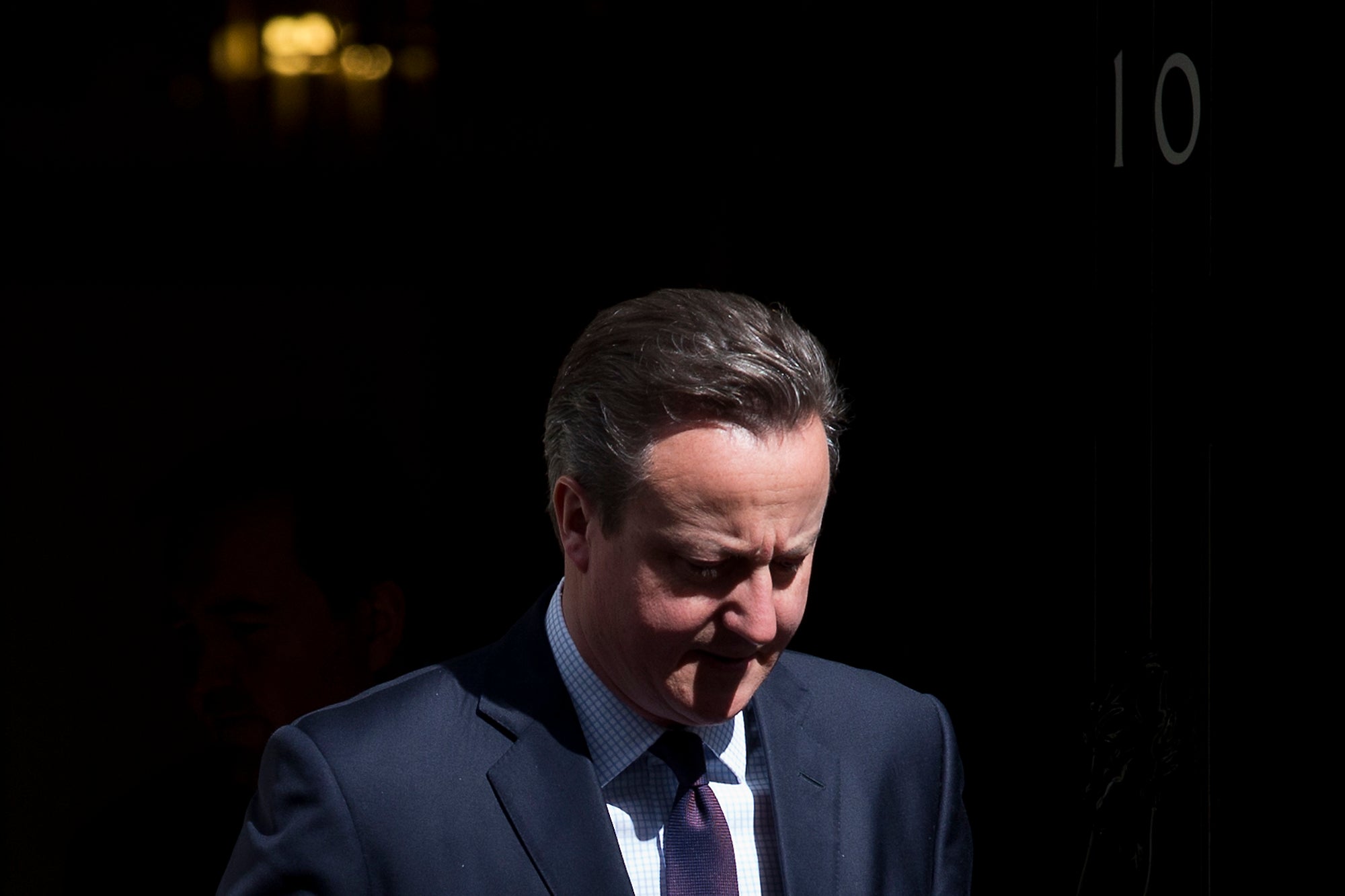David Cameron will not be investigated over off-shore trust and tax affairs by parliamentary watchdog
PM insisted he had not been involved in tax avoidance

Your support helps us to tell the story
From reproductive rights to climate change to Big Tech, The Independent is on the ground when the story is developing. Whether it's investigating the financials of Elon Musk's pro-Trump PAC or producing our latest documentary, 'The A Word', which shines a light on the American women fighting for reproductive rights, we know how important it is to parse out the facts from the messaging.
At such a critical moment in US history, we need reporters on the ground. Your donation allows us to keep sending journalists to speak to both sides of the story.
The Independent is trusted by Americans across the entire political spectrum. And unlike many other quality news outlets, we choose not to lock Americans out of our reporting and analysis with paywalls. We believe quality journalism should be available to everyone, paid for by those who can afford it.
Your support makes all the difference.Standards watchdogs will not investigate Prime Minister David Cameron over the off-shore controversy revealed by the Panama Papers data leak.
The Parliamentary Commissioner for Standards, Kathryn Hudson, has decided not to probe the matter, but her office refused to explain the reasons for that decision.
Mr Cameron was forced into the position where he had to release a six-year summary of his tax affairs after it emerged he made a £19,000 profit from selling shares in an off-shore trust set up by his father, Ian.
The Prime Minister insisted he was not involved in a tax dodge, and the way the trust was set up was entirely proper.
But Mr Cameron did admit he had badly handled the subsequent furore after details of the business emerged in the Panama Papers leaking.
Mr Cameron said he had initially been angry about the way his father's memory had been "traduced" as a result of the controversy.
After the political storm erupted, Mr Cameron said he was happy to provide more information about his personal finances to the Parliamentary Standards Commissioner if required.
Mr Cameron said he sold his shares in the off-shore trust Blairmore Holdings in January 2010, five months before becoming PM, because he wanted to avoid any conflict of interest.
"I did not want anyone to be able to suggest that as prime minister I had any other agendas or vested interests. Selling all my shares was the simplest and clearest way that I could do that," Mr Cameron told the Commons at the beginning of last week.
The Prime Minister said at the time he had given information on the affair to the Parliamentary Standards Commissioner.
"There are strict rules in this House for the registration of shareholdings - I have followed them in full.
"The Labour Party has said it would refer me to the Commissioner for Parliamentary Standards - I have already given her the relevant information and if there is more she believes that I should say I am very happy to say it," Mr Cameron told MPs.
The PM used the Commons address to explain why he had not made all relevant information public sooner.
"I accept all of the criticisms for not responding more quickly to these issues - but as I said, I was angry about the way my father's memory was being traduced.
"I know he was a hard-working man and a wonderful dad and I'm proud of everything he did to build a business and provide for his family."
Mr Cameron also faced questioning over a £200,000 gift from his mother, which followed the 300,000 inheritance he received after the 2010 death of his father Ian.
The payments by Mary Cameron to her son in May and July 2011 were given tax free, and will only become liable to inheritance tax of up to 40% if the Prime Minister's mother dies within seven years of handing over the money. There is no suggestion that they have broken any rules.
Mr Cameron said parents should not be embarrassed about passing money on to their children, and insisted it was something "fully recognised" in the tax system.
Labour leader Jeremy Corbyn dismissed the PM's Commons statement at the time as a "masterclass in the art of distraction" and suggested Mr Cameron did not understand public anger over tax avoidance and evasion.
Press Association
Join our commenting forum
Join thought-provoking conversations, follow other Independent readers and see their replies
Comments